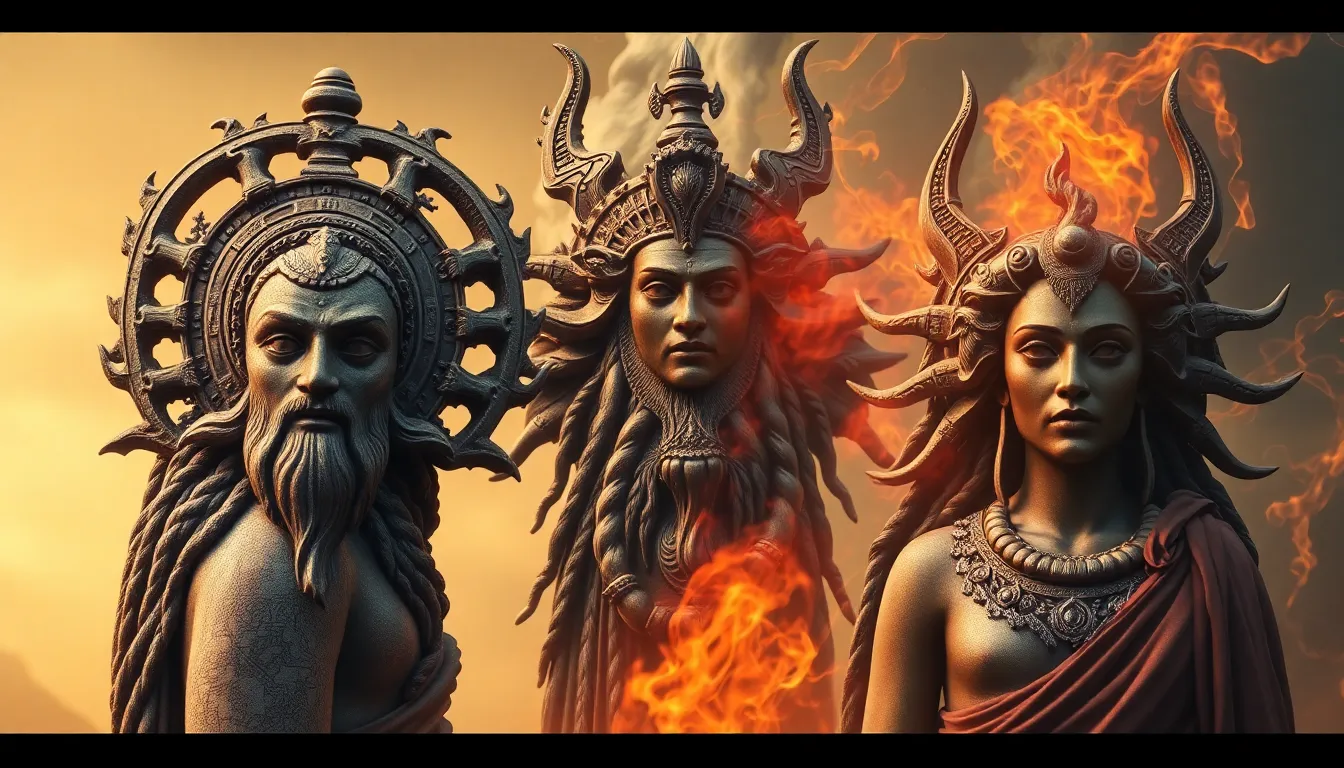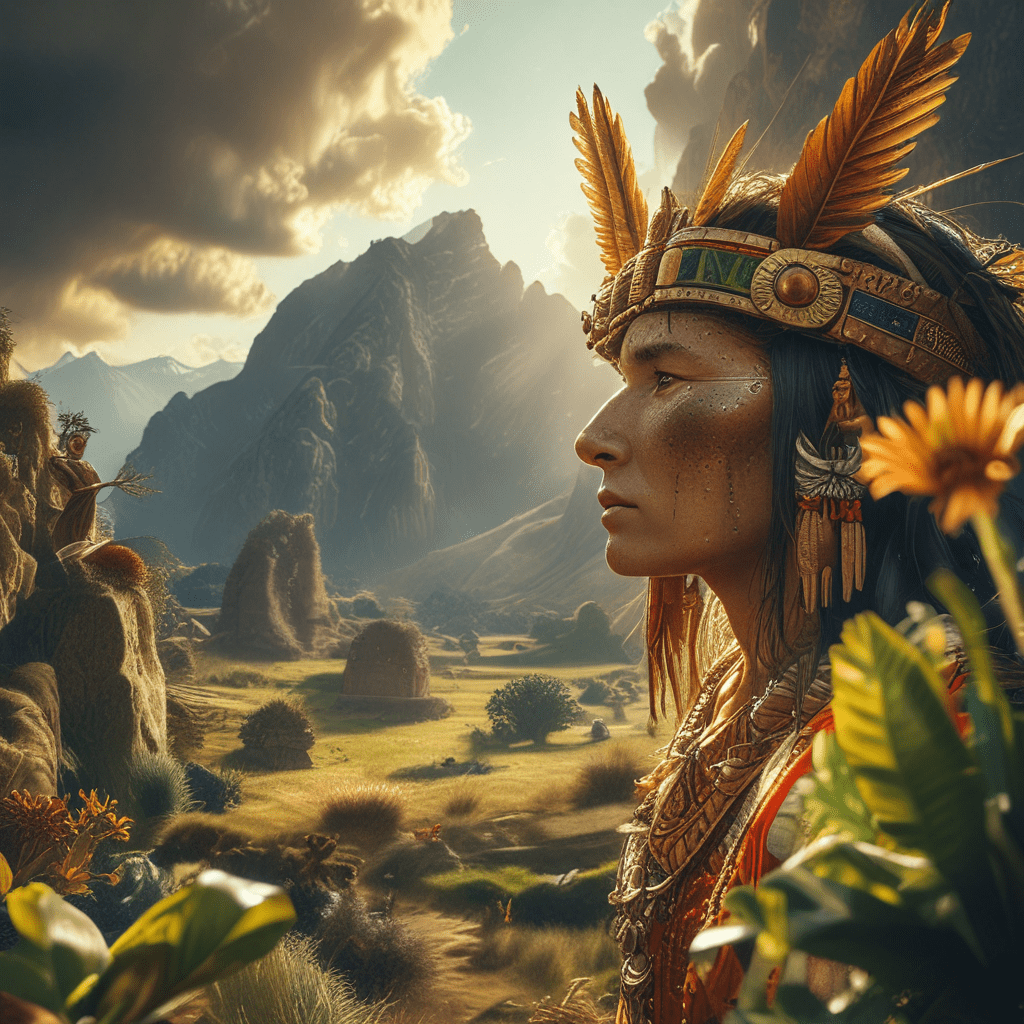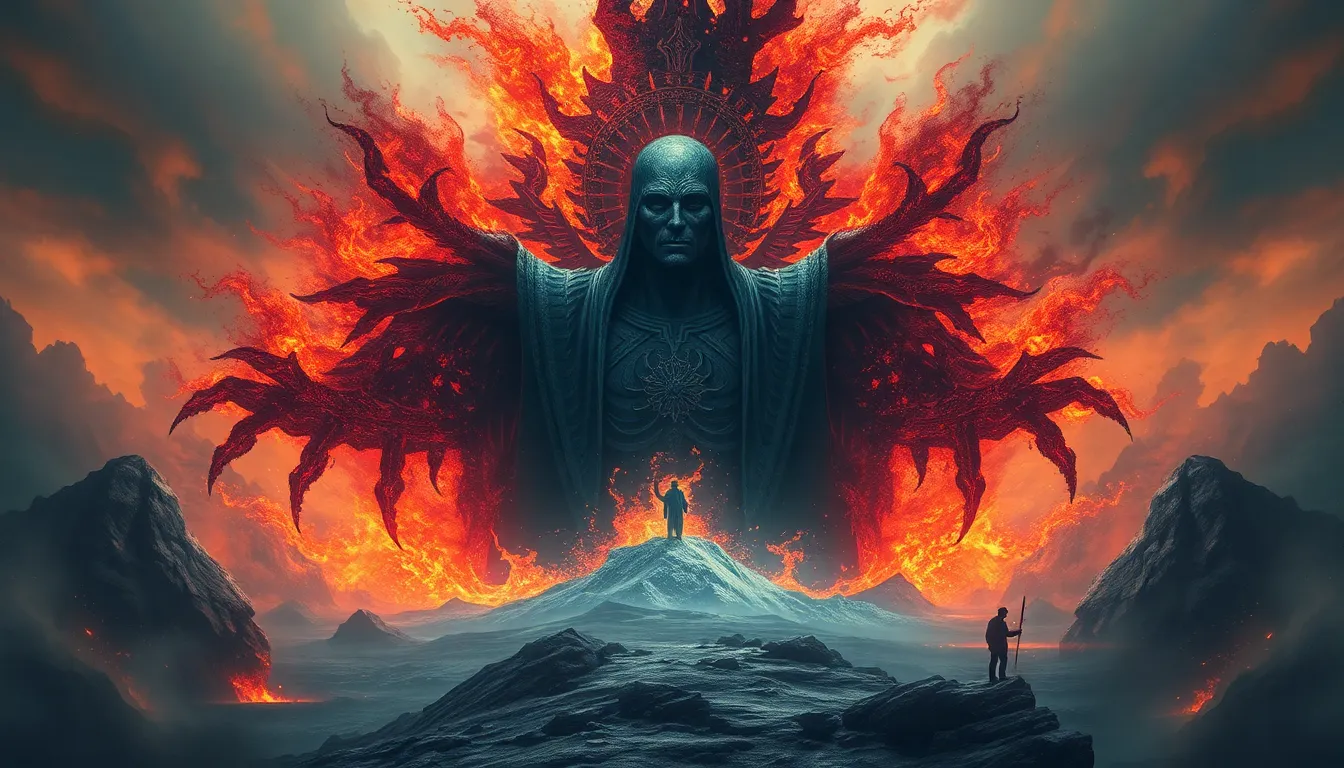Ancient Deities and Their Role in Human Emotions: A Mythological Exploration
I. Introduction
Throughout history, deities have served as the embodiment of human emotions and experiences, offering a divine perspective on the complexities of life. In ancient cultures, deities were not just figures of worship but were integral to understanding and expressing emotions. This article delves into the intricate relationship between mythology and human emotions, exploring how ancient civilizations perceived and categorized feelings through their pantheon of gods.
II. The Concept of Emotion in Ancient Civilizations
The understanding of emotions in historical contexts varied significantly across different cultures. Ancient societies often viewed emotions not merely as personal feelings but as forces that could influence human behavior and destiny.
- Emotions were often associated with natural phenomena and divine will.
- Cultures categorized emotions into distinct groups, such as love, anger, joy, and sorrow.
Mythology played a pivotal role in shaping these emotional experiences. Myths provided narratives that helped individuals understand their feelings, often personifying emotions through deities who exhibited human-like qualities.
III. Greek Mythology: Gods of Emotion
In Greek mythology, various deities were directly associated with specific emotions, showcasing how the ancients perceived and valued feelings.
A. Overview of key deities associated with emotions
- Aphrodite (Love): The goddess of love and beauty, Aphrodite represented not only romantic love but also the broader concept of attraction and desire.
- Ares (Anger): Known as the god of war, Ares embodied the more destructive aspects of anger and aggression, reflecting the tumultuous nature of human conflict.
- Dionysus (Ecstasy and Madness): As the god of wine, pleasure, and festivity, Dionysus represented the ecstatic and chaotic nature of human emotion, often blurring the lines between joy and madness.
B. Stories and myths that illustrate emotional influences
Numerous myths illustrate how these gods influenced human emotions. For instance, the love affair between Aphrodite and Ares often serves as a narrative about the interplay between love and conflict. Meanwhile, tales of Dionysus highlight the liberating but dangerous power of ecstasy.
C. Impact on Greek culture and emotional expression
The emotional narratives surrounding these deities significantly impacted Greek culture, informing art, literature, and philosophy. The Greeks used these myths to explore their emotional landscapes, creating a rich tapestry of human experience.
IV. Roman Influences: Emotions and Their Divine Representatives
The Romans adopted many Greek deities, often reinterpreting them within their cultural context and associating them with specific emotional attributes.
A. Adaptation of Greek deities and their emotional attributes
Roman mythology maintained much of the Greek tradition but infused it with new meanings and societal values.
B. Key Roman gods and their emotional domains
- Venus (Love): The Roman equivalent of Aphrodite, Venus was revered for her influence over love, beauty, and fertility.
- Mars (War and Fury): Mars, like Ares, was associated with the brutality of war and the rage that accompanies conflict.
C. Cultural implications of Roman mythology on emotions
Roman mythology reflected the societal values of discipline and order, often depicting emotions as forces to be controlled rather than celebrated. This view shaped the emotional expressions of Roman citizens, emphasizing stoicism and restraint.
V. Egyptian Mythology: The Emotional Spectrum of the Gods
Egyptian mythology offers a unique perspective on the emotional spectrum, with gods embodying a wide range of feelings.
A. Overview of major deities and their emotional representations
- Isis (Compassion and Mourning): As a goddess of healing and magic, Isis represented the deep emotional bonds of family and the pain of loss.
- Set (Chaos and Anger): Set, associated with storms and disorder, embodied the darker aspects of emotions, reflecting chaos and conflict.
B. The role of myth in societal coping mechanisms
Mythology provided a framework for coping with emotions, particularly in relation to death and the afterlife. The stories of the gods helped Egyptians understand and process grief, loss, and chaos.
C. The significance of emotional narratives in Egyptian life
These narratives were crucial in daily life, influencing rituals and practices that acknowledged the emotional experiences of individuals and communities.
VI. Hindu Mythology: Emotions and Divine Interactions
In Hindu mythology, emotions are intricately woven into the fabric of spiritual practice and philosophical thought.
A. Key deities representing various emotions
- Krishna (Joy and Playfulness): Krishna is often seen as a playful god, embodying joy, love, and the divine play of life.
- Kali (Destruction and Transformation): Kali represents the fierce aspect of life, encompassing destruction as a means to transformation and renewal.
B. The philosophical perspectives on emotions in Hindu texts
Hindu texts explore the duality of emotions, often presenting them as pathways to enlightenment. The complexity of feelings is acknowledged, with an emphasis on transcendence and understanding.
C. The influence of mythology on emotional practices and rituals
Rituals and practices in Hindu culture often draw upon these emotional narratives, using them to guide individuals in their spiritual journeys and emotional expressions.
VII. Norse Mythology: Emotions in a Harsh Landscape
Norse mythology presents a rugged view of emotions, shaped by the harsh realities of life in the Nordic regions.
A. Deities associated with emotions in Norse culture
- Freyja (Love and War): Freyja embodies the duality of love and conflict, representing the emotional complexities of desire and battle.
- Loki (Trickery and Chaos): Loki symbolizes the unpredictable nature of emotions, often causing turmoil and chaos among the gods.
B. Myths that reflect the complexities of human emotions
Many Norse myths reflect the struggle of emotions against a backdrop of fate and inevitability, illustrating the belief that emotions are intertwined with destiny.
C. Norse views on fate and emotional responses
In Norse culture, emotions were often seen as intertwined with the concept of fate, emphasizing the acceptance of one’s emotional responses as part of the human experience.
VIII. Indigenous Mythologies: Emotional Connections to Nature
Indigenous mythologies around the world often explore the relationship between emotions and the natural world, with deities representing the emotions associated with nature.
A. Overview of various indigenous cultures and their deities
Various indigenous cultures have unique deities that embody emotions related to the environment—for example, gods and goddesses associated with storms, fertility, and the changing seasons.
B. The role of nature in emotional narratives
Nature serves as a powerful backdrop for emotional experiences, with myths illustrating how natural phenomena reflect human feelings such as joy, sorrow, anger, and peace.
IX. Conclusion
Throughout history, ancient deities have provided a lens through which humanity can explore and understand emotions. From Greek and Roman mythology to Egyptian, Hindu, Norse, and indigenous beliefs, the representation of emotions in mythology has shaped cultural expressions and individual experiences alike. By examining these connections, we gain insight into the timeless nature of human emotions and their profound impact on our lives.



